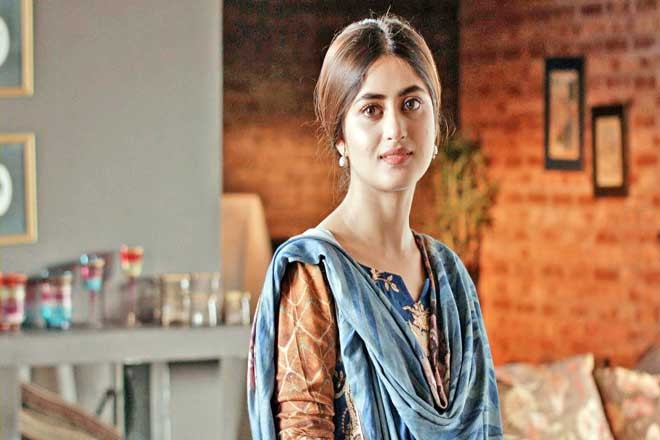

Round Up
In 2016, social drama Udaari left a strong mark on viewers and critics not only in Pakistan but beyond borders as well. The project dared to highlight a tough subject like child sexual abuse and was executed in a manner that didn’t sensationalize the issue in any way. While this led to critical as well as commercial success of the play, it also paved way for more small screen projects to take up important social issues (Khuda Mera Bhi Hai, Sammi, Mujhay Jeenay Do). While most of them failed to live up to the hype and generate great reviews, a new trend of social dramas emerged in 2017.
If we look back at TV plays that ruled the small screen in the past one year, they introduced several progressive female characters more than anything else. To name a few, the rebellious Kanwal Baloch in Baaghi, inspired from the life of the sensational Qandeel Baloch, the outspoken Sassi in O Rangreza and a young, working woman Dr Zubia in Yakeen Ka Safar offered a change of pace from weeping willows that are generally at the heart of our dramas.
Multiple projects attempted to give a voice to women and empower them in an otherwise male dominant society. Whether it was being brutally honest about one’s father’s hypocrisy (O Rangreza) or standing in front of one’s merciless brother who murdered a sister under the name of honour (Ghairat) or leaving the house to earn a living (Mubarak Ho Beti Hui Hai), such rare characters emerged on the small screen this year.
However, sometimes the treatment of these characters appeared to be too extreme to be acceptable and appreciated in our part of the world. For instance, Suhana (Sanam Baloch) in Teri Raza married Imtiaz (Sarmad Khoosat), the man of her parent’s choice but the relationship ended in divorce because she was in love with someone else. She didn’t stop affiliating with her boyfriend (Shahroz Sabzwari) even after marriage and this created issues in her married life. This conduct can’t be justified on a lot of levels. Similarly, Sassi (Sajal Aly) in O Rangreza may have given a reality check to her father (Noman Ijaz) and what she said was absolutely right too but no daughter talks to her father like that. She not only misbehaves with him but is also very open to him about the man she is interested in, who is almost her father’s age. There are several other examples where these over-the-top portrayals made the characters look unbelievable despite an otherwise realistic feel.
The good and the bad
It was refreshing to see strong, independent women on the small screen but it was disturbing that they weren’t happy in their lives, whether it was Dr Zubia, Sassi or Suhana. They remained confused and in distress till the end and until a man lent a supporting hand (some of the plays are still on air). Their characters could have been made more relatable had the producers developed them fully without killing the plot (O Rangreza).
Besides, a few TV plays also attempted to break away from clichéd plots in a bid to offer unique stories. Some of the names include the recently concluded Yakeen Ka Safar that had a medical angle to it and also highlighted some social issues and Alif Allah Aur Insaan that brings forth harsh realities and touches upon several important issues prevalent in our society.
However, not all of them managed to keep up with the pace and sustain viewers’ interest either because of loopholes in the story or killing off of characters who don’t have a better ending. This is alarming because a lot of projects that began on an interesting and unique note ended up to be dull and boring. They are going on and on without any twist or turns to offer (ongoing play O Rangreza is one of them though it has picked up pace since the last few episodes).
While it is a step forward, making way for more progressive and modern-day plays, it is equally discouraging that most of the dramas that topped the ratings chart featured weak, crying women (Bholi Bano, Khaali Haath, Choti Si Zindagi, etc.)
The way forward
Considering the nature of dramas that made way to our TV screens in 2017, it is a positive sign that producers and channels are willing to take some risks in terms of content and character portrayals. Some of the new TV plays that went on air recently and aim to offer something different are Khaani, Qurbaan and Aesi Hai Tanhai. If they keep on working in this direction with better character developments and planned narratives that don’t lose their plot or kill off characters once their role is over, the coming year may set new benchmarks for Pakistani television like some in the past years. Fingers crossed.